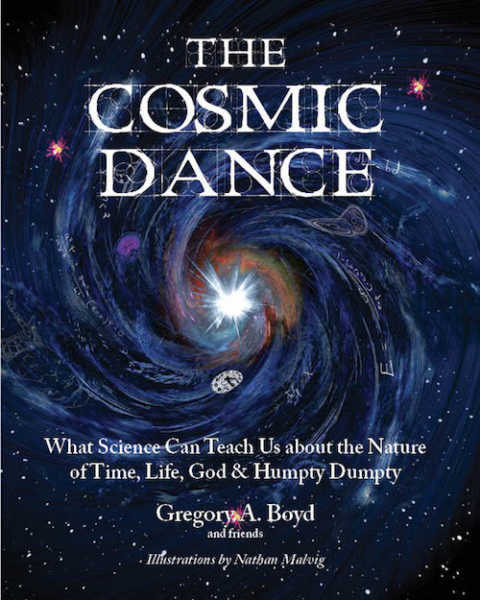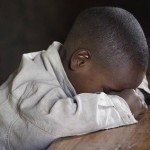We run our website the way we wished the whole internet worked: we provide high quality original content with no ads. We are funded solely by your direct support. Please consider supporting this project.

Roger Olson’s Review of The Cosmic Dance
Today we wanted to share a review of The Cosmic Dance by esteemed theologian Roger Olson. You can check out an excerpt below or you can read the whole review here. You can place an order for The Cosmic Dance here.
The Cosmic Dance is Greg’s (and friends’) attempt to present the case that the best contemporary science supports viewing time as an “arrow” such that an omnipresent being (such as the God of traditional Christianity) would not “already be” in the future or “still be” in the past but would experience the future as not yet and the past as no longer available. In other words, the book argues, using numerous quotations from and references to modern and contemporary physics, that relativity theory, as understood through post-Einsteinian physics, supports an “open view” of the universe and the future in which real novelty and spontaneity characterize events within an overall interconnected whole of reality.
When I read a book I often try to find a key paragraph that sums up its main “big idea” or single most important thesis. Here is my candidate for that in The Cosmic Dance: “In this book we’ve argued that Quantum Theory, Chaos-Complexity Theory and Non-equilibrium Thermodynamics suggest that a fully deterministic description of the world is impossible, and that time and novelty are more than mere illusions. We’ve argued that even Relativity Theory gives a role to time that is very different from space. This all suggests that reality moves from a settled past into a partly open future.” (184) …
I can heartily recommend this book for the pictures if nothing else! Seriously, however, if you are interested in reading a case made from science that time is “for real” and not illusory, and that although time and space are, indeed, inter-related that does not mean an omnipresent being must somehow already be “in the future,” buy the book.
Category: General
Tags: Open Theism, Roger Olson, The Cosmic Dance
Related Reading

Does Prayer Really Change Things?
Many people operate out of a blueprint model where God is viewed as absolutely unchanging, and all that occurs in the world is the unfolding of an eternal divine plan. If this is the case, then the purpose of prayer is to change us, not to change things. While prayer does change us, the Bible…

How do you respond to Matthew 26:36?
At the last supper Jesus said to Peter, “Truly I tell you, this very night, before the cock crows, you will deny me three times.” This is probably the most frequently quoted verse by defenders of the classical understanding of God’s foreknowledge against the open view. How, they ask, could Jesus have been certain Peter…

Did Free Will Evolve? (podcast)
Greg considers how free will emerged from the churning chaos of evolution.. Episode 613 http://traffic.libsyn.com/askgregboyd/Episode_0613.mp3

Neo-Molinism and the Infinite Intelligence of God
Classical Molinism holds that, since God is omniscient and knows all truths, he knows not only what every agent will do in the future, but also what every agent would have done in every other “possible world.” In this essay I argue that classical Molinism overlooked a whole category of truths that an omniscient God…

What is the significance of Amos 7:1–6?
The Lord revealed a judgment he was planning to bring on Israel to Amos in a vision. Amos prayed “O Lord God, forgive, I beg you!” (vs. 2). Scripture declares that, “The Lord relented concerning this; ‘It shall not be,’ said the Lord” (vs. 3). The Lord then showed Amos another fierce judgment he was…

Paradigm Shift Questions
A couple that was recently introduced to ReKnew and several of my books recently wrote to tell me that they are in the process of embracing the warfare worldview along with the open view of the future. They said that they “realize that these things aren’t minor adjustments but are rather all-encompassing paradigm shifts in…
